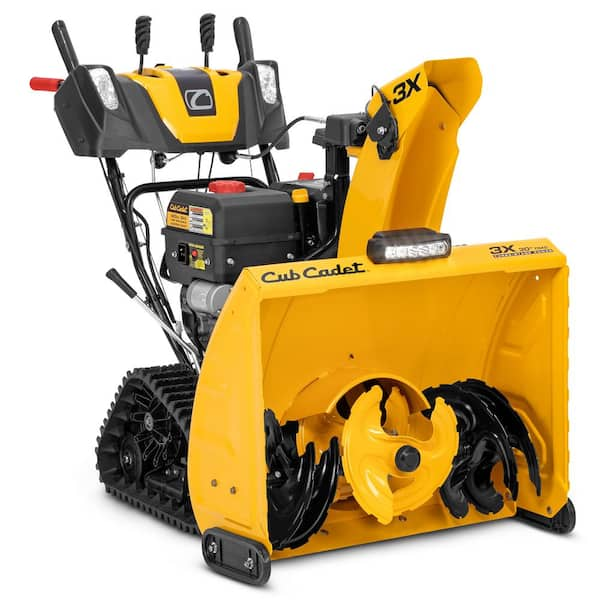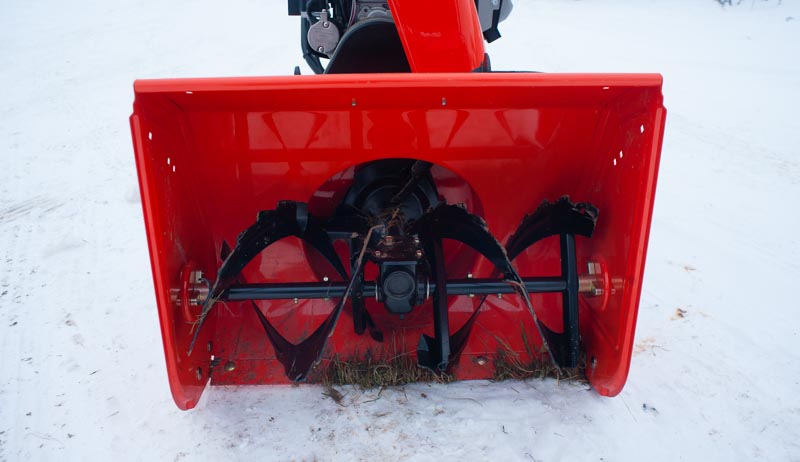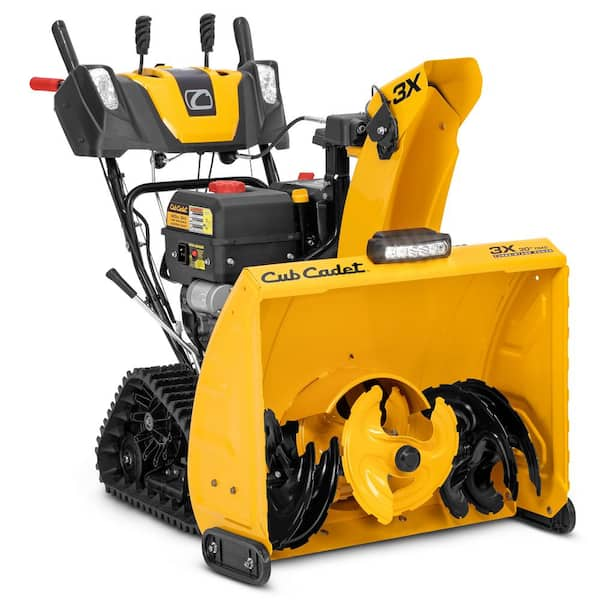Winter is upon us and with it comes the daunting task of clearing our driveways and walkways from snow. The question on everyone’s minds is, “How many cc’s should a snowblower have?” We all want a snowblower that is powerful enough to tackle any amount of snow that comes our way, but is there a magic number when it comes to cubic centimeters? In this article, we will explore the different factors to consider when choosing the right cc for your snowblower, so you can make an informed decision and conquer winter with ease.
Snowblower Engine Basics
When it comes to choosing a snowblower, understanding the basics of the engine is crucial. One important factor to consider is the engine cc, or cubic centimeter, which refers to the size of the engine’s combustion chamber. The engine cc is indicative of the power output of the snowblower and plays a significant role in its performance.
What is an engine cc?
Engine cc refers to the volume of the engine’s cylinders, specifically the total displacement of all the cylinders in the engine. In general, a higher engine cc indicates a larger and more powerful engine.
Understanding engine power
Engine power is measured in horsepower (HP) and is a measure of the engine’s output. A higher horsepower generally means a more powerful snowblower, capable of handling heavy snow and tough conditions more effectively.
The relationship between engine size and power
The size of the engine, or engine cc, directly affects the power output of the snowblower. A larger engine with higher cc will typically produce more power, allowing the snowblower to plow through deeper and denser snow with ease. However, it’s important to find the right balance between engine size and power for your specific needs.
Factors to Consider
Before choosing a snowblower, there are several factors to consider that can help determine the ideal engine cc for your needs.
Snow depth and density
The amount and density of snow in your area greatly impact the engine power required. If you usually experience light snowfalls, a lower cc snowblower may be sufficient. However, if you often encounter heavy, wet snow, a higher cc snowblower would be more suitable for the task.
Driveway or walkway size
The size of the area you need to clear also influences the engine cc you should consider. Smaller driveways or walkways may not require as much power, while larger areas will benefit from a snowblower with a higher engine cc.
Terrain and slope
Consider the terrain and slope of your property. If you have steep slopes or uneven terrain, a more powerful snowblower will provide the necessary traction and control to navigate such conditions effectively.
Frequency of use
How often you plan to use the snowblower is another crucial factor to consider. If you live in an area with frequent snowfalls, a higher cc snowblower will ensure efficient and reliable performance throughout the winter season.
Other features
In addition to engine cc, there are other features to consider when choosing a snowblower, such as electric start, self-propelled capabilities, and adjustable chute and deflector. These features can enhance usability and convenience, and should also be taken into account when determining the ideal engine cc for your needs.

This image is property of anestwithayard.com.
CC Recommendations for Residential Use
For residential use, snowfall depth is typically the primary determining factor when selecting the appropriate engine cc.
Light duty (up to 18 inches of snow)
For light-duty residential use, typically experiencing snow depths of up to 18 inches, a snowblower with an engine cc ranging from 200cc to 350cc should suffice.
Medium duty (18-24 inches of snow)
Medium-duty snowfalls, ranging from 18 to 24 inches, will require a snowblower with an engine cc of approximately 350cc to 500cc. This range of engine cc will provide the necessary power to effectively handle snow of this depth.
Heavy duty (24+ inches of snow)
In areas prone to heavy snowfall, with depths exceeding 24 inches, a snowblower with an engine cc of 500cc or higher is recommended. This level of power is necessary to tackle the challenges posed by deep and dense snow.
CC Recommendations for Commercial Use
Commercial-grade snowblowers are designed to handle more demanding tasks and require higher engine cc to accommodate the increased workload.
Light-duty commercial
For light-duty commercial use, such as small businesses or light commercial areas, snowblowers with engine cc ranging from 500cc to 800cc should be sufficient.
Medium-duty commercial
Medium-duty commercial snowblowers, suitable for larger commercial areas or properties, typically have an engine cc of 800cc to 1000cc. These snowblowers can handle heavier snowfalls and more frequent use.
Heavy-duty commercial
Heavy-duty commercial use, such as clearing large parking lots or heavy snowfall areas, requires snowblowers with engine cc exceeding 1000cc. These powerful snowblowers can handle the most demanding snow-removal tasks.

This image is property of www.cubcadet.ca.
Considering Four-Stroke vs Two-Stroke Engines
In addition to engine cc, another consideration when choosing a snowblower is whether to opt for a four-stroke or two-stroke engine. Both engine types have their own advantages and considerations.
Different fuel requirements
A key distinction between four-stroke and two-stroke engines is their fuel requirements. Four-stroke engines typically run on regular gasoline, while two-stroke engines require a specific oil-gasoline mixture.
Emissions and environmental impact
Four-stroke engines tend to be more environmentally friendly, emitting fewer pollutants compared to two-stroke engines. This consideration might be important if you prefer a cleaner and greener option.
Noise levels
Two-stroke engines are known to produce more noise compared to their four-stroke counterparts. If noise levels are a concern, a snowblower with a four-stroke engine might be more suitable.
Maintenance and ease of use
Four-stroke engines generally require less maintenance compared to two-stroke engines. They also tend to be easier to start and operate, making them a convenient choice for many users.
Choosing the Right Brand
When investing in a snowblower, it’s essential to choose a reputable and reliable brand. Consider the following factors when selecting a brand:
Researching reliable brands
Take the time to research and identify well-established brands known for producing high-quality snowblowers. Look for brands that have a reputation for durability and performance.
Customer reviews and ratings
Read customer reviews and ratings to gain insights into the experiences of other users. This will help you gauge the reliability and satisfaction levels associated with a particular brand.
Warranty and customer support
Check for warranty options and the availability of customer support when researching different brands. A solid warranty and accessible customer support can provide peace of mind in case any issues arise.
Price range
Consider your budget when choosing a snowblower brand. Compare prices and features across different brands to ensure you get the best value for your money.

This image is property of images.thdstatic.com.
Understanding Additional Features
When selecting a snowblower, it’s important to understand and consider the additional features it offers. These features can add convenience and enhance the overall snow-clearing experience.
Electric start
Snowblowers with electric start eliminate the need for manual pulling to start the engine. This feature is especially useful in cold weather conditions.
Self-propelled
A self-propelled snowblower reduces the effort required to maneuver and push the equipment. This feature is beneficial when dealing with heavy snow or larger areas.
Single-stage vs two-stage
Single-stage snowblowers are generally lighter and more compact, making them suitable for smaller areas. Two-stage snowblowers, on the other hand, are designed to handle heavier snowfalls and provide greater power and throwing distance.
Adjustable chute and deflector
Having an adjustable chute and deflector allows you to control the direction and distance at which the snow is thrown. This feature adds flexibility and precision to your snow-clearing efforts.
Heated handle grips
Some snowblowers come equipped with heated handle grips, providing additional comfort when operating the equipment in cold weather.
Headlight
A built-in headlight can be a useful feature, especially if you often find yourself clearing snow during early morning or late evening hours when visibility is limited.
Maintenance and Care
To ensure the longevity and optimal performance of your snowblower, regular maintenance and care are essential. Here are some key areas to focus on:
Checking oil levels
Regularly check the oil levels in your snowblower and change the oil as recommended by the manufacturer. This ensures proper lubrication of the engine and prevents damage.
Spark plug maintenance
Inspect and clean the spark plug regularly to ensure it is functioning properly. A fouled or damaged spark plug can affect the starting and performance of your snowblower.
Fuel system care
Use clean and fresh gasoline, following the manufacturer’s recommendations. Consider using fuel stabilizer to prevent fuel deterioration during periods of non-use.
Cleaning and storage
After each use, clean your snowblower thoroughly, removing any debris or snow buildup. Properly store your snowblower in a dry and protected area to prevent rust or damage from moisture.

This image is property of img.hobbyfarms.com.
Consulting with Experts
If you are unsure about the engine cc and other factors that should influence your snowblower choice, it can be helpful to consult with experts in the field.
Talking to knowledgeable salespersons
Visit local retailers or dealerships and talk to salespersons who specialize in snowblowers. They can provide valuable insights and recommendations based on your specific needs and circumstances.
Seeking advice from professionals
If you have a large or complex property that requires expert advice, consider consulting with professional snow removal services. They can assess your needs and make recommendations based on their experience and expertise.
Online forums and communities
Participating in online forums and communities focused on snowblowers can also be beneficial. Engage with other users and enthusiasts to gather insights, tips, and recommendations.
Conclusion
Choosing the right snowblower engine cc is essential for efficient snow removal, whether it’s for residential or commercial use. Factors such as snow depth, driveway size, and specific needs should guide your decision. Consider additional features, maintenance requirements, and consult with experts to make an informed choice. With the right snowblower and engine cc, you can confidently tackle any winter storm. Stay warm and keep that driveway clear!

This image is property of anestwithayard.com.
